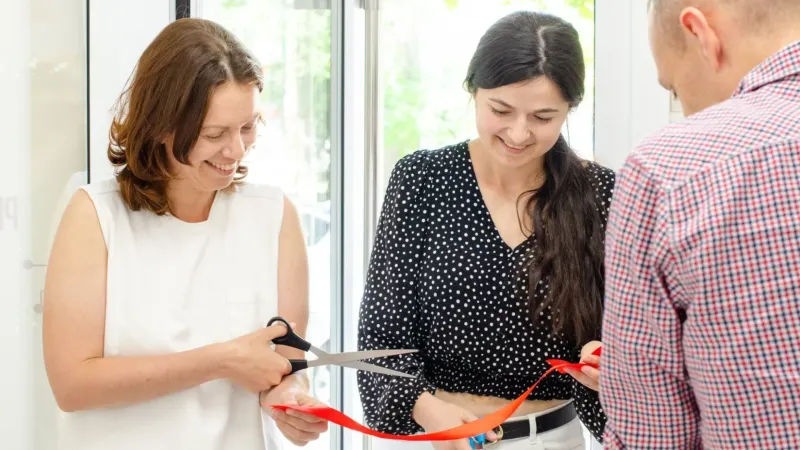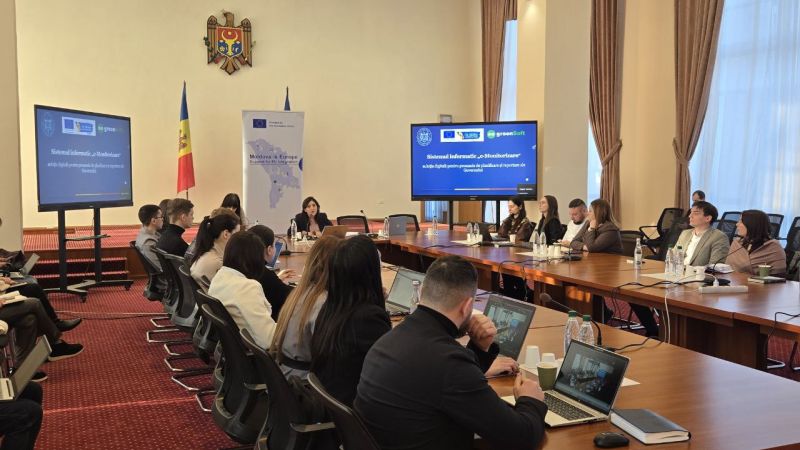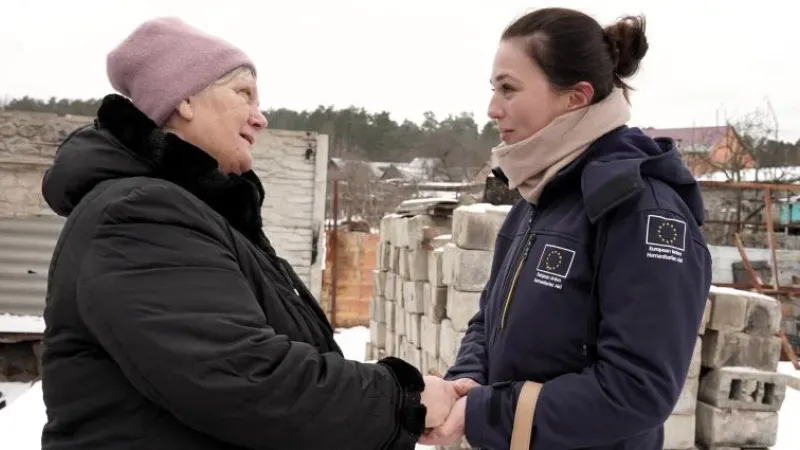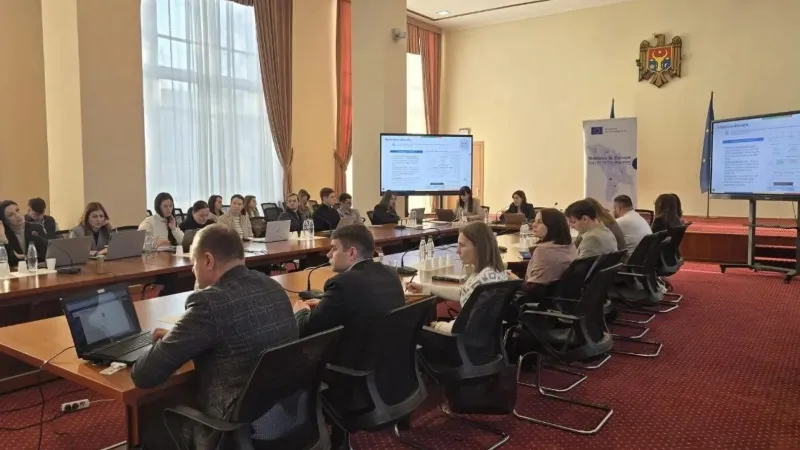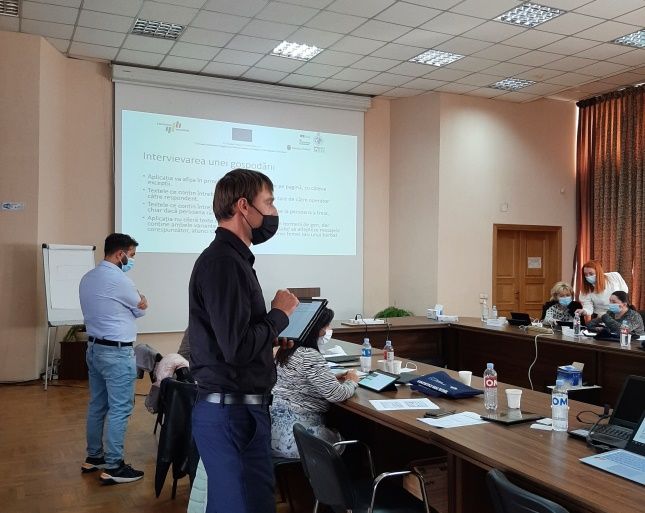
UE oferă asistență tehnică continuă în susținerea Biroului Național de Statistică al Republicii Moldova
În lunile septembrie–octombrie 2021, proiectul „Asistenţă tehnică pentru susţinerea Biroului Naţional de Statistică al Republicii Moldova” a continuat implementarea activităților planificate, desfășurând mai multe ateliere de lucru, traininguri și evenimente.
În luna septembrie, 49 de angajați ai Biroului Național de Statistică (BNS) au susținut cu brio evaluarea de la finalul cursului de limbă engleză. Instruiți de profesori calificați, timp de nouă luni, angajații BNS au beneficiat de un curs gratuit de limbă engleză, care s-a desfășurat online de două ori pe săptămână. Cunoașterea limbii engleze la un nivel mai avansat va permite personalului BNS să acceseze documente metodologice ale UE și internaționale, precum și acquis-ul comunitar legat de statisticile oficiale.
În octombrie, BNS a început să testeze metode noi și moderne de colectare a datelor în Ancheta asupra forţei de muncă în gospodării. În perioada 4 – 8 octombrie, iar apoi pe 21 și 22 octombrie, proiectul a susținut organizarea instruirilor pentru operatorii de interviu și supervizori, cu scopul de a testa și practica o aplicație de interviu personal asistat de computer (CAPI) dezvoltată în comun de experții proiectului și departamentul IT al BNS. Pentru prima dată, datele statistice moldovenești pentru Ancheta Forței de Muncă (AFM) sunt colectate digital, folosind tablete sincronizate cu un server central. CAPI este o alternativă modernă a tradiționalei colectări de date statistice pe hârtie, unde operatorii de interviu utilizează dispozitivele portabile electronice, pentru a colecta date de la respondenți.

Începând cu a doua jumătate a lunii octombrie, operatorii de interviu instruiți au început să lucreze pe teren în mai multe localități din țară.
La 22 octombrie, în contextul Zilei profesionale a Statisticianului în Republica Moldova, marcată anual la 20 octombrie, a fost organizat un eveniment dedicat utilizării datelor geospațiale pentru producerea și diseminarea statisticilor oficiale. La eveniment au participat reprezentanți ai Agenției Relații Funciare și Cadastru, ai Departamentului Cadastru al Agenției Servicii Publice, ai Ministerului Finanțelor și mediului academic, donatori externi, experții proiectului, precum și parteneri de dezvoltare. În cadrul evenimentului, s-a relatat despre implementarea la ora actuală în Republica Moldova a Cadrului Geospațial Statistic Global și a Infrastructurii Naționale de Date Spațiale și rolul BNS și Agenției Relații Funciare și Cadastru în cadrul acesteia. Discuțiile au reliefat importanța integrării datelor geospațiale și statistice, relevanța interoperabilității datelor, importanța parteneriatelor la nivel național și internațional. În acest context, BNS și-a confirmat angajamentul de a dezvolta în continuare infrastructura statistică geospațială pentru a se alinia la standardele europene.

Activitățile proiectului au continuat cu un atelier online, desfășurat în perioada 25-26 octombrie, organizat cu privire la implementarea metodologiei Sistemului European de Statistici Integrate privind Protecția Socială (SESPROS) în Republica Moldova. Atelierul a avut ca scop, de asemenea, prezentarea și validarea schemelor de protecție socială identificate de BNS cu sprijinul asistenței UE, prin desfășurarea de întâlniri individuale cu instituțiile naționale partenere responsabile de producerea datelor referitoare la protecția socială, în principal fluxurile financiare de cheltuieli. și venituri privind protecția socială pentru persoanele care locuiesc în Republica Moldova.
De asemenea, experții proiectului au asistat BNS într-o serie de alte domenii statistice, cum ar fi anchetele structurale în afaceri și statisticile comerțului internațional, îmbunătățirea legislației naționale referitoare la statisticile oficiale, statisticile educației, anchetele privind satisfacția utilizatorilor și sistemele de metadate pentru statistici.
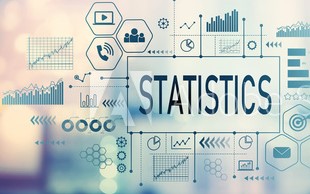
În cele din urmă, BNS și experții din cadrul proiectului au înregistrat progrese la implementarea unui nou site web și la dezvoltarea unui nou branding al instituției, conform celor mai noi și moderne tendințe ale institutelor naționale de statistică europene.

